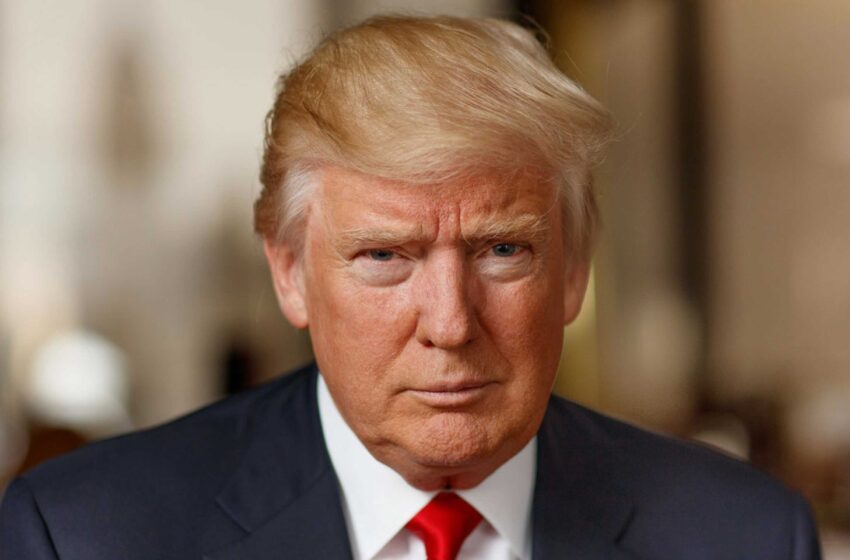Can Trump legally run again? Steve Bannon claims there’s a secret 2028 plan for the 22nd Amendment

Donald Trump. Picture: David Hume Kennerly/Getty Images
The 22nd Amendment to the United States Constitution explicitly limits presidents to two elected terms in office. Ratified in 1951 after Franklin D. Roosevelt’s four-term presidency, its goal was to safeguard the nation from extended executive power. Yet, recent statements from former White House strategist Steve Bannon have sparked debate over whether Donald Trump could secure a third term in 2028.
Bannon, in a recent interview with The Economist, asserted, “He’s gonna get a third term… Trump is gonna be president ’28, so people just ought to get accommodated with that.” He insisted there is a strategy within Trump’s inner circle to work around the 22nd Amendment, though he offered no specifics.
What the 22nd Amendment Actually Says
The amendment prevents anyone from being elected to the presidency more than twice. It also bars anyone who has served more than two years of another president’s term from being elected twice. Constitutional scholars emphasize that while the amendment restricts election, it does not explicitly bar succession scenarios, such as becoming president through a vice president arrangement, a loophole occasionally discussed by Trump supporters.
Legal experts like William Baude of the University of Chicago assert that the amendment is clear: “There is no wiggle room on the 22nd Amendment.” Others, however, such as Michigan State’s Brian Kalt, highlight that historical loopholes and constitutional ambiguities could theoretically be exploited, though these remain highly controversial.
READ ALSO
Trump Hints at Third-Term Possibilities
Donald Trump himself has repeatedly floated the idea of a third term, suggesting “methods… you could do it,” including scenarios where Vice President JD Vance could run in 2028, then resign, paving the way for Trump to succeed him. He has also alluded, more jokingly, to extraordinary measures during wartime, though legal experts quickly reject such approaches.
Bannon described Trump as an “instrument of divine will” and claimed that the country “needs him for at least one more term.” Such rhetoric has fueled speculation among political analysts and constitutional scholars about the feasibility of circumventing term limits.
Political and Public Reactions
Trump’s talk of a third term has drawn criticism from both legal experts and political opponents. Critics warn that attempting to bypass the 22nd Amendment could trigger a constitutional crisis, undermining democratic norms. Supporters, however, frame it as a reflection of popular demand, claiming Trump is uniquely positioned to continue his political agenda.
Historically, the 22nd Amendment has never been legally challenged in court in a scenario like this, leaving much of the discussion speculative but politically charged.
What This Means for the 2028 Election
While Trump remains legally barred from being elected for a third term under a straightforward reading of the Constitution, political strategists in his orbit continue to explore alternative pathways. These include vice-presidential succession, constitutional amendments, or leveraging perceived public support to pressure Congress.
Legal scholars emphasize that any effort to bypass the 22nd Amendment would likely face fierce judicial scrutiny and provoke intense political debate. The issue underscores growing concerns about the balance of power, constitutional limits, and the influence of executive ambition in modern U.S. politics.
FAQ
Q1: What is the 22nd Amendment?
A1: Ratified in 1951, the 22nd Amendment limits U.S. presidents to two elected terms, or one full term plus up to two years of a predecessor’s term.
Q2: Can Donald Trump run for a third term?
A2: Under the plain text of the 22nd Amendment, Trump cannot be elected for a third term. However, legal experts note theoretical succession loopholes or amendments could be explored.
Q3: What loopholes are being discussed for Trump’s third term?
A3: Proposed ideas include a vice president election workaround, where the VP resigns after winning, allowing Trump to assume the presidency. Constitutional amendments or extraordinary wartime measures are also mentioned, though unlikely.
Q4: Who in Trump’s circle supports a third term?
A4: Steve Bannon and other MAGA-aligned advisors publicly claim there is a plan for 2028, citing Trump’s popularity and unfinished political agenda.
Q5: Is bypassing the 22nd Amendment legal?
A5: Most legal scholars, including William Baude, emphasize that bypassing it through conventional means is unconstitutional, and any attempt would likely trigger a legal and political crisis.
Q6: How has Trump hinted at running again?
A6: Trump has posted videos and statements on platforms like Truth Social suggesting he could pursue methods to serve a third term, without specifying exact strategies.
Q7: Why was the 22nd Amendment created?
A7: It was designed to prevent presidents from holding office indefinitely, inspired by Franklin D. Roosevelt’s four-term presidency, to protect democratic governance.

